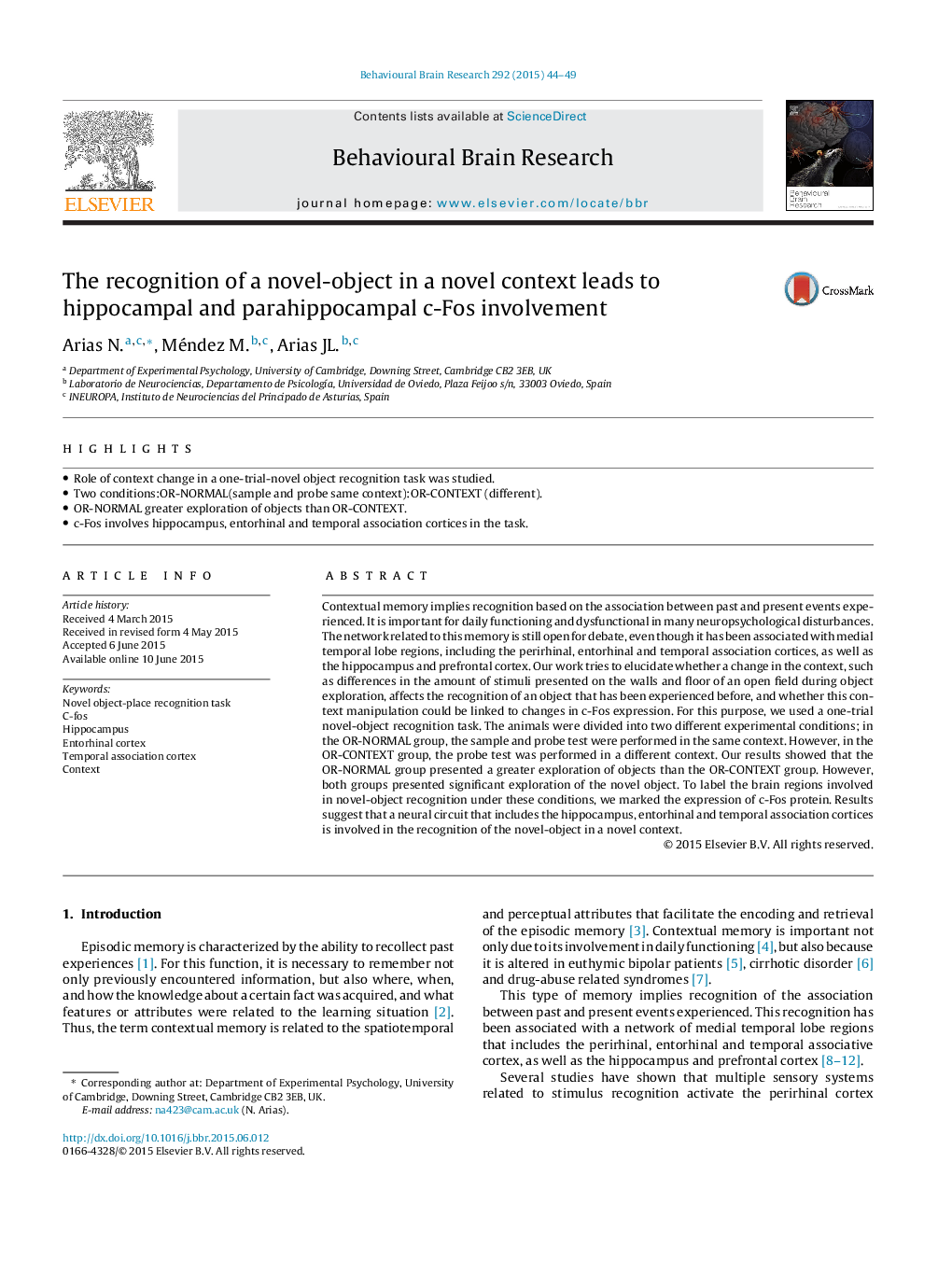| Article ID | Journal | Published Year | Pages | File Type |
|---|---|---|---|---|
| 6256462 | Behavioural Brain Research | 2015 | 6 Pages |
â¢Role of context change in a one-trial-novel object recognition task was studied.â¢Two conditions:OR-NORMAL(sample and probe same context):OR-CONTEXT (different).â¢OR-NORMAL greater exploration of objects than OR-CONTEXT.â¢c-Fos involves hippocampus, entorhinal and temporal association cortices in the task.
Contextual memory implies recognition based on the association between past and present events experienced. It is important for daily functioning and dysfunctional in many neuropsychological disturbances. The network related to this memory is still open for debate, even though it has been associated with medial temporal lobe regions, including the perirhinal, entorhinal and temporal association cortices, as well as the hippocampus and prefrontal cortex. Our work tries to elucidate whether a change in the context, such as differences in the amount of stimuli presented on the walls and floor of an open field during object exploration, affects the recognition of an object that has been experienced before, and whether this context manipulation could be linked to changes in c-Fos expression. For this purpose, we used a one-trial novel-object recognition task. The animals were divided into two different experimental conditions; in the OR-NORMAL group, the sample and probe test were performed in the same context. However, in the OR-CONTEXT group, the probe test was performed in a different context. Our results showed that the OR-NORMAL group presented a greater exploration of objects than the OR-CONTEXT group. However, both groups presented significant exploration of the novel object. To label the brain regions involved in novel-object recognition under these conditions, we marked the expression of c-Fos protein. Results suggest that a neural circuit that includes the hippocampus, entorhinal and temporal association cortices is involved in the recognition of the novel-object in a novel context.
